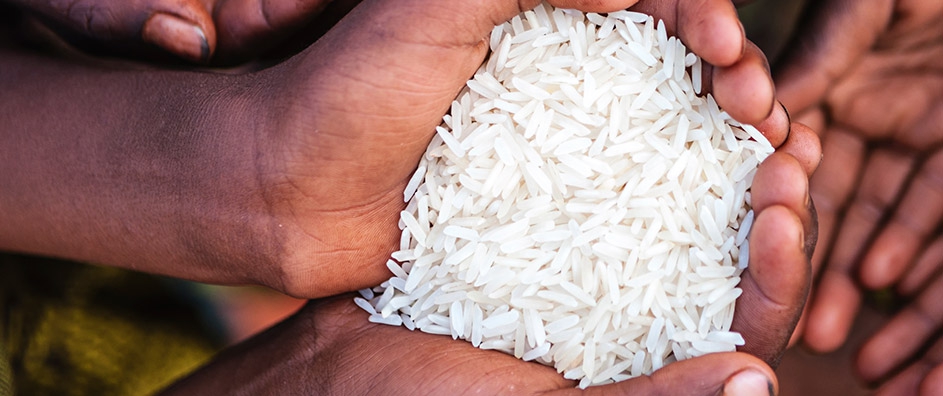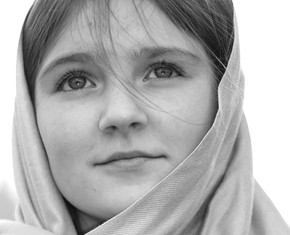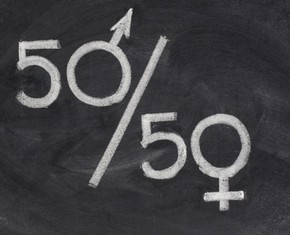The views expressed in our content reflect individual perspectives and do not represent the authoritative views of the Baha'i Faith.
Baha’is believe, in a future state of society, that humanity will strive to eliminate the extremes of wealth and poverty.
How does that relate to the food choices we make? The United Nations World Food Program reports that, around the world, 25,000 people die each day from hunger-related causes, many of them children under the age of five.
Another one billion people do not have enough to eat–one-sixth of the earth’s population, more than the United States, Canada, and the European Union combined.
The world has a huge discrepancy between those who have too much to eat, and those who suffer with nothing at all.
Baha’is believe that human nobility and spiritual development will lead humanity, in the future, to the realization that no individual could enjoy eating his food or resting at home while knowing that one person somewhere in the world goes without food or shelter. This recognition of the unity and the interconnectedness of humanity, part of the Baha’i principle of the oneness of humankind, means that we truly are family:
You must turn attention more earnestly to the betterment of the conditions of the poor. Do not be satisfied until each one with whom you are concerned is to you as a member of your family. – Abdu’l-Baha, Abdu’l-Baha in London, p. 91.
This loving, caring familial bond, the Baha’i teachings say, will gradually link us to one another, and increasingly assure that no member of the human family goes hungry.
The Baha’i teachings also emphasize the love of nature and protection of the environment. The prophet and founder of the Baha’i Faith, Baha’u’llah, loved and cherished nature deeply. The Baha’i writings overflow with exquisite testimony to the beauty of the world around us:
Nature is God’s Will and is its expression in and through the contingent world. – Tablets of Baha’u’llah, p. 142.
Baha’u’llah also warns us to care for the environment, that we should not abuse it as we have:
…ye walk on My earth complacent and self-satisfied, heedless that My earth is weary of you and everything within it shunneth you. – The Hidden Words, pp. 28-29.
When you look at the state of our planet’s environment, it certainly does seem that the Earth itself must be weary, especially of the way we insist on eating animals. The following statistics come from the World Resources Institute:
50% of all grains raised in the world are used for livestock feed.
30% of the land surface of the earth is devoted to animal agriculture.
70% of all fresh water is used for animal production–watering crops which are fed to livestock, water used for livestock, as well as water used in the slaughtering of animals and food production.
According to the U.N. Environment Programme, 17% of the Amazon’s original rainforest has been lost to animal grazing and agribusiness, with estimates of a 50% loss in the next 20 years. The U.N. notes that “…the livestock sector emerges as one of the top 2 or 3 most significant contributors to the most serious environmental problems at every scale, from local to global.”
 Almost one-fifth (18%) of the world’s greenhouse gases come from methane produced by livestock, more than all the world’s planes, buses, cars, and trains combined. Worse, the resulting climate change produces droughts which often cause more starvation and death. Real people from our human family, our brothers and sisters, suffer the consequences of our food choices.
Almost one-fifth (18%) of the world’s greenhouse gases come from methane produced by livestock, more than all the world’s planes, buses, cars, and trains combined. Worse, the resulting climate change produces droughts which often cause more starvation and death. Real people from our human family, our brothers and sisters, suffer the consequences of our food choices.
Have you heard about the low-carbon diet? (No, I’m not talking about the low-carb diet!) The low-carbon diet seeks to decrease our “carbon footprint” via the food choices we make. It emphasizes lower meat intake to decrease methane production and water use, as well as buying foods locally to decrease consumption of fossil fuels for transportation.
Producing one pound of beef causes as many carbon emissions as driving your car 440 miles. Statistics show that it’s better to drive a Hummer and eat a veggie dog, than to drive a Prius and eat a beef hot dog. If we pay attention to our food choices by eating less meat and consuming less energy and fewer resources, we’re actually helping others eat anything at all.
















Comments
Sign in or create an account
Continue with Googleor